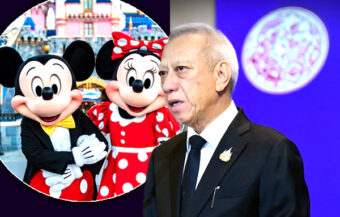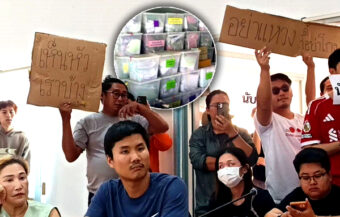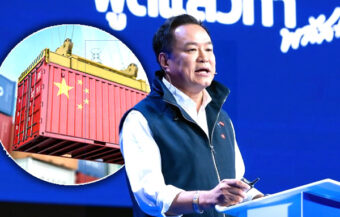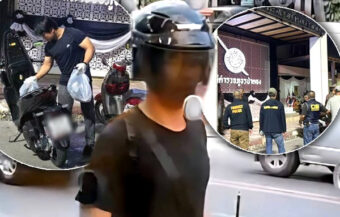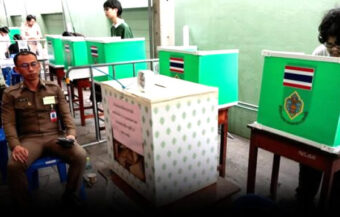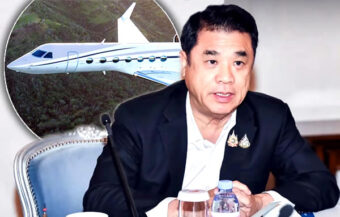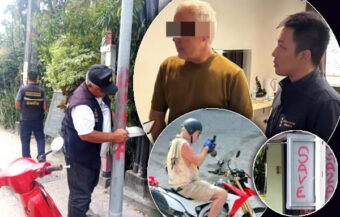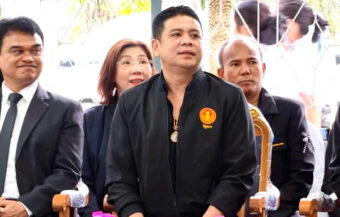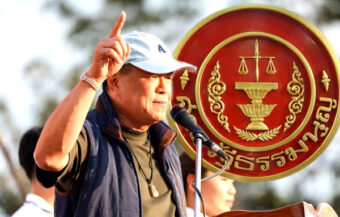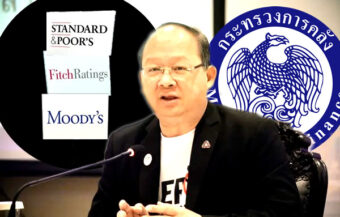Conservatives push to bring back General Prayut as incumbent Prime Minister Paetongtarn faces a court ruling and her father Thaksin battles legal troubles. Political tensions rise with Pheu Thai’s support waning and the People’s Party gaining ground.
Thailand’s Pheu Thai-led government scrambled Sunday to crush rumours that Prime Minister Paetongtarn Shinawatra will quit before her Constitutional Court ruling over a leaked phone call with Cambodia’s Hun Sen, yet her ouster now seems almost certain. Conservative forces are preparing to target her father, Thaksin Shinawatra—the real power behind the ministry—who faces critical court judgments on August 22 and September 9, aiming to topple the current government and install a tougher, more conservative regime. However, the public isn’t fooled; while Pheu Thai’s support wanes, the People’s Party is rapidly gaining ground. Any attempt to exploit this political chaos will only deepen Thailand’s crisis. After decades of coups and a fractured constitution designed to weaken political parties, the nation cannot afford more instability. The stakes have never been higher.

Thailand’s political situation is tense and increasingly unpredictable. Meanwhile, Prime Minister Paetongtarn Shinawatra faces a looming Constitutional Court judgement that could end her tenure. At the same time, her father, former Prime Minister Thaksin Shinawatra, is confronting multiple legal challenges. Together, these cases are intensifying speculation about the future of the ruling Pheu Thai Party.
Under Thailand’s 2017 Constitution, the House of Representatives alone can elect a prime minister. However, Section 88 requires that any nominee be put forward by a political party. In addition, Section 160 forbids “prohibited persons” from holding the post.
Constitutional rules require party nomination and votes from members for electing a prime minister
Furthermore, at least 10% of House members must nominate a candidate. Winning requires at least 5% of votes from the full chamber.
Because of these rules, the idea of an “outsider” prime minister is contentious. Nevertheless, arch-conservative politicians have renewed calls for one. Notably, their favoured choice is General Prayut Chan-o-cha, the former prime minister and current privy councillor. In the last election, he was nominated by the United Thai Nation Party despite not being a member.
If Prayut were chosen, the move would not technically violate the charter. However, it would require Pheu Thai to abandon its current nominee, Chaikasem Nitisiri. Such a step would be a major political concession, especially when the party is under pressure.
The speculation about Prayut’s return is driven by multiple factors. For one thing, he remains a polarising figure but commands loyalty among conservatives. Moreover, his past role as Section 88 nominee strengthens the case for his eligibility. Yet, his reappointment would almost certainly reignite Thailand’s deep political divisions.
Past protests and coups set precedent for outsider prime minister amid current calls for Prayut’s return
This type of outsider scenario became a reality in 2014. Back then, the People’s Democratic Reform Committee shut down Bangkok with anti-government protests. The movement opposed then-prime minister Yingluck Shinawatra and the so-called “Thaksin regime.”
Consequently, Parliament was paralysed and other state institutions were in disarray. The protesters pushed for an outsider leader, rejecting scheduled elections. However, the army, under Prayut, instead staged a coup.
Today, with Paetongtarn in a vulnerable position, the idea has resurfaced. Indeed, some political figures openly support bringing Prayut back. Yet, this would be seen by many as a power grab by Thailand’s “old guard.”
Paetongtarn’s legal troubles stem from a leaked audio recording. Allegedly, the tape captured her conversation with Cambodian Senate President Hun Sen. Critics claim the call breached constitutional provisions. The Constitutional Court’s decision on the case is expected soon.
Meanwhile, Pheu Thai spokesperson Danuporn Punnakanta has denied rumours of Prime Minister Paetongtarn’s resignation before the verdict. He confirmed the party has not discussed such a move. According to him, if she remains in office, she will continue her duties. If removed, Chaikasem Nitisiri will take over and implement existing policies and budgets.
Thaksin’s upcoming court rulings and digital wallet controversy raise concerns about Pheu Thai’s future
Meanwhile, Thaksin Shinawatra is fighting his own legal battles. On August 22, the court will rule on his lèse-majesté case. Then, on September 9, the Supreme Court will announce its decision on his 2023 prison sentence. If Thaksin is jailed, many analysts predict Pheu Thai’s collapse.
Thaksin continues to wield influence despite having no formal office. Observers see him as the party’s strategic leader and the key force behind the current government. Therefore, his legal fate could determine the party’s survival.
Further complicating matters is the controversy surrounding Pheu Thai’s ฿10,000 digital wallet project. This flagship policy reallocated ฿35 billion from five state-owned banks. Petitioners claim the move violated Section 144 of the Constitution. That clause forbids MPs from using state funds for personal or political gain.
The reallocation reportedly reduced funds meant to compensate banks for losses under debt suspension schemes and crop price guarantees. The Bank for Agriculture and Agricultural Cooperatives allegedly lost ฿31.3 billion. Similarly, the Government Savings Bank lost ฿2.68 billion, and the Government Housing Bank lost ฿592 million.
Anti-corruption commission probe into digital wallet budget threatens ministers and political instability
The National Anti-Corruption Commission is investigating. If it finds grounds, the case will go to the Constitutional Court. Importantly, the precedent is serious. Deputy House Speaker Pichet Chuamuangphan faced a 10-year political ban for promoting budget projects that could benefit his voters. Even though the projects were cancelled, he was removed from his post.
Analysts believe ministers and MPs who supported the digital wallet plan could face similar penalties. This includes more than 480 lawmakers and senators. Such a ruling would deepen the government’s instability.
These legal crises unfold against a backdrop of heightened nationalism. In July, Thailand and Cambodia engaged in a four-day border conflict. As a result, public opinion appears to have shifted sharply.
A National Institute of Development Administration poll released Sunday, August 10 revealed overwhelming trust in the military. According to the survey, 75.73% strongly trust the army’s ability to protect national interests. By contrast, only 4.89% strongly trust the Ministry of Foreign Affairs, and 4.66% the government.
Satisfaction with the army’s role during the border conflict contrasts sharply with the government’s
Satisfaction levels align with trust figures. Over 75% are very satisfied with the army’s performance during the conflict. In contrast, 54.43% say they are not at all satisfied with the government’s handling of the issue.
The survey also explored preferred solutions to the dispute. Most respondents, 41.98%, favour bilateral diplomatic negotiations. About 27.63% prefer economic pressure, such as closing the border and suspending trade. Another 27.10% say the government should be changed to improve conflict resolution.
Other suggested measures include increasing military strength at the border and using international legal channels against Cambodia. A minority, 2.21%, fully support the government’s current approach.
The poll also asked about admitting Cambodian patients to Thai hospitals. A majority, 51.37%, oppose admitting all patients, whether residents or border crossers. Another 35.81% favour admitting only Cambodian residents already in Thailand. Just 11.45% support admitting all without restriction.
Pheu Thai spokesman stresses military-government partnership amid the battle for public opinion
Danuporn Punnakanta, a Pheu Thai Party spokesman and party list MP, responded. He explained that the military and government are partners in the matter of the nation’s defence. He acknowledged the strong trust in the armed forces but stressed close cooperation. Several joint committees are involved in both border protection and national security.
Political analysts say the next month will be decisive. If Paetongtarn is removed and Thaksin is jailed, Pheu Thai could face a leadership vacuum. That, in turn, would strengthen the case for an outsider prime minister. For conservatives, General Prayut is the likely choice. However, his return could inflame long-standing tensions.
The “old guard” would need deals to secure such an outcome. Thaksin might agree if offered legal protection. However, such arrangements could alienate the public and trigger unrest.
Significantly, the brokering of a ceasefire with Cambodia and the 19% US tariff deal are seen as accomplishments by the present government. At the same time, despite massive uncertainty and headwinds, the government is making plodding progress.
Bank of Thailand’s new chief and finance minister plan credit stimulus amid a conservative push for power
Indeed, with a more liberal Bank of Thailand chief just approved to take up the role on Sunday by the King, the Minister of Finance is due to roll out efforts to stimulate credit within the economy. Mr. Vitai Ratanakorn is seen as much more accommodating to pushing growth and less hawkish.
Despite that, there is a push by the conservative right to galvanise the public. This certainly may be misplaced, and the anticipated fall in popularity for democratic parties may not come about.
Moreover, so far, the most recent National Institute of Development Administration (NIDA) poll shows any drop in support for Pheu Thai, translating into stronger support for the People’s Party.
Finance Ministry & central bank move to boost credit by shifting non-performing debt into asset firms
Prime Minister Paetongtarn lodges a defence and will not resign before the Constitutional Court judgement
Political stasis has left people with neither brains nor heart to push the country forward: Thanathorn
Thailand is, therefore, at a critical juncture. Legal battles, public opinion, and party politics are converging. The outcome will shape leadership and democratic stability.
If the courts rule against both Shinawatras, the political balance will shift dramatically. The coming weeks will test the resilience of Thailand’s institutions. The choices made now will decide whether the country moves toward compromise and facing its problems or deeper division.
Join the Thai News forum, follow Thai Examiner on Facebook here
Receive all our stories as they come out on Telegram here
Follow Thai Examiner here
Further reading:
Senate Committee Chair tells government to send Trump’s men packing and accept the 36% tariff rate


